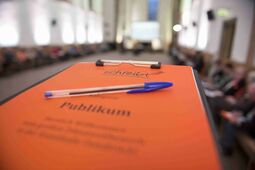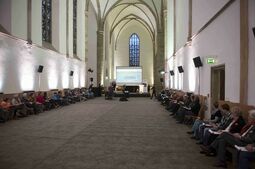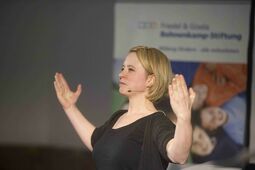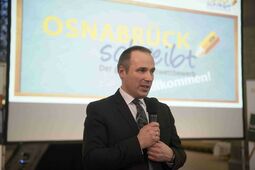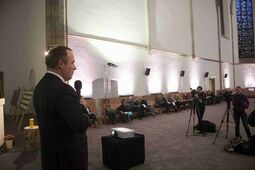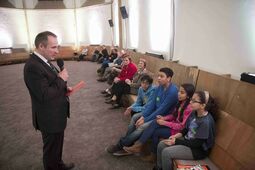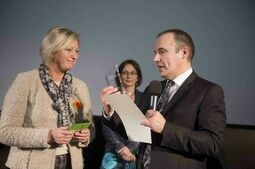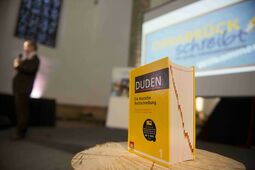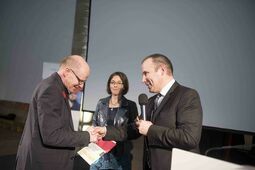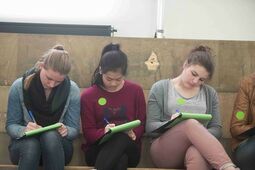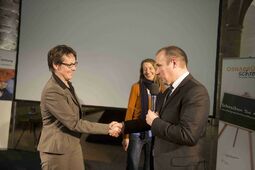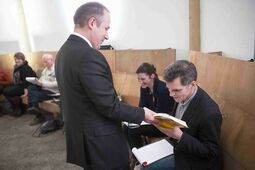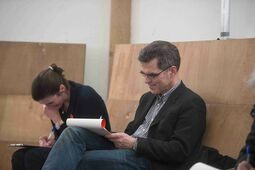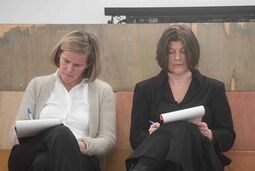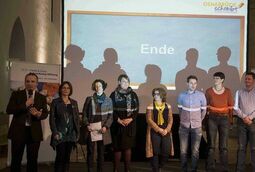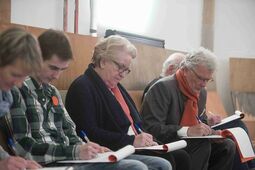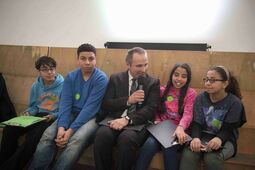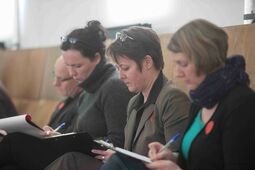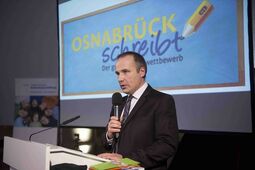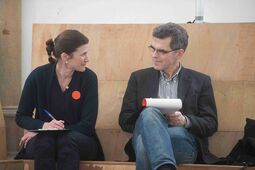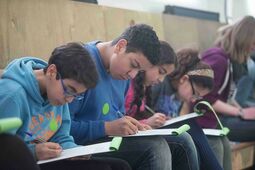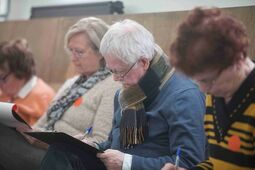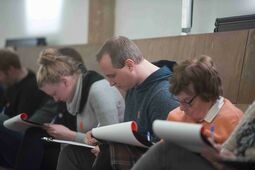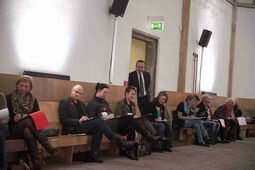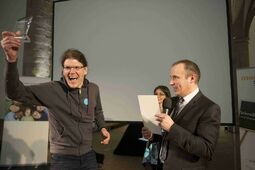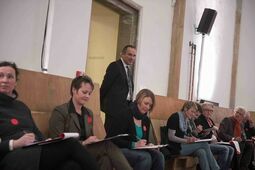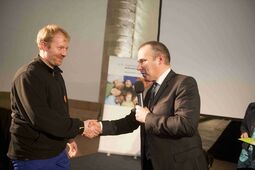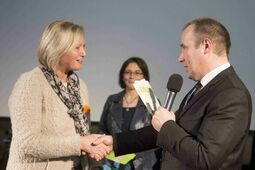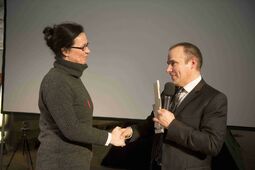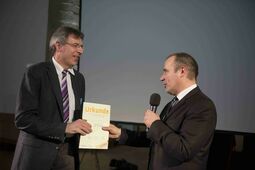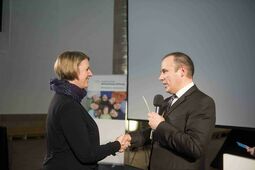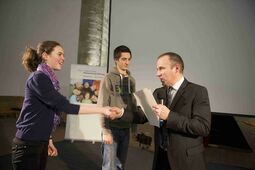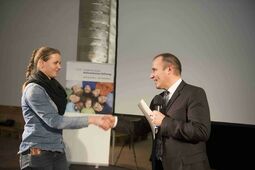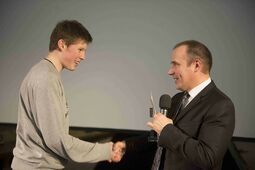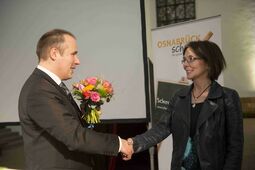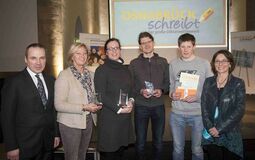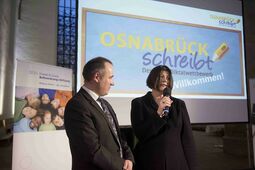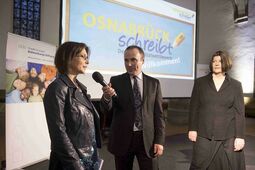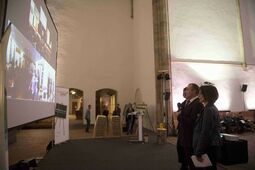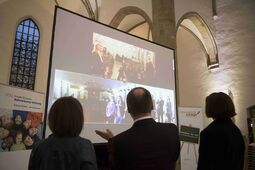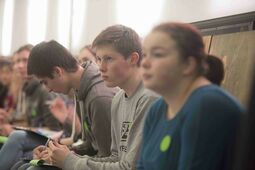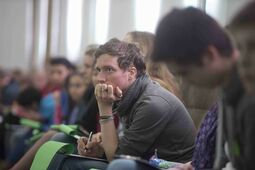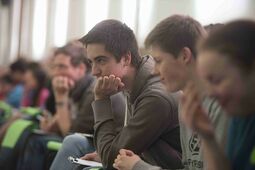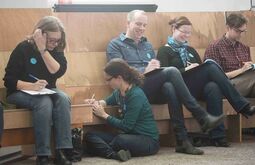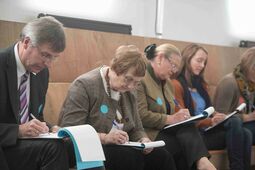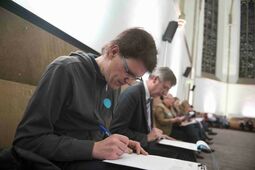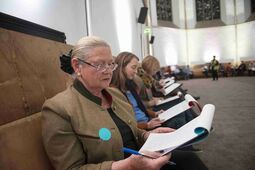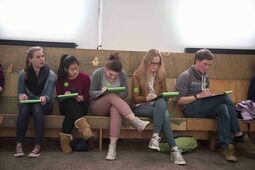Tricky language game
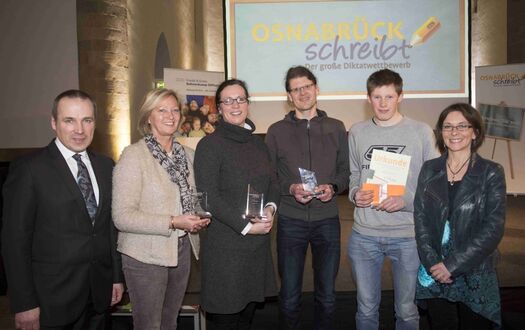
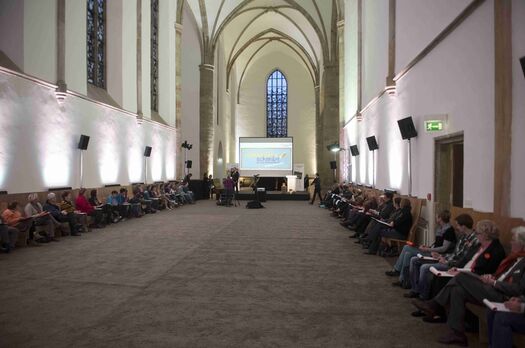
Heads were spinning at the big "Osnabrück schreibt" dictation competition
Osnabrück, February 27, 2015
No sooner does the beamer light up the first part of the dictation with "Wo beizeiten sonntagvormittags" than a collective "Oohhh!" can be heard in the Kunsthalle. What the Duden editorial team formulated for the big dictation competition "Osnabrück schreibt" was tricky. 200 words that had it all. And so none of the 70 fellow writers won with zero errors. Thomas Allewelt, a teacher at Osnabrück's "In der Wüste" high school, was the best participant out of four groups with only seven mistakes: Together with the winners from the student, parent and audience divisions, the educator will take part in the final round of the competition in Frankfurt am Main on May 5.
The big dictation competition took place simultaneously in Hamburg and Hesse, where live broadcasts were made. It was developed by the Stiftung Polytechnische Gesellschaft Frankfurt am Main in 2012, while the organizer in Osnabrück was the Friedel & Gisela Bohnenkamp Foundation. "Our foundation is delighted to see how much attention this competition has generated for the topic of language and spelling," said Michael Prior, the foundation's executive director.
As precise as Loriot was in his work, this time he was wrong. The humorist once said that the German language should not be oversimplified. This fear was probably not shared by any of the participants, who all listened quietly as mice to Christina Noack's words. The German language and literature professor from the University of Osnabrück recited the dictation, which had been kept under wraps until shortly before the event. No one was supposed to have an advantage until it was time to say "Let's go!", and for that reason, too, all aids were forbidden: "Cell phones off, copying is unsportsmanlike," was the opening statement. Then the heads of politicians, school principals, pensioners, art teachers, journalists and, above all, children and young people bent over the dictation paper. The competition was aimed at high school students, but anyone who wanted to test their knowledge of German spelling could take part. The youngest participant was nine-year-old Safia Marnissi, who eagerly wrote along with her brother Sofiene (12), her eleven-year-old cousin and her twelve-year-old cousin. "German and art are my favorite subjects," the girl said. And so, she said, she didn't mind when her mother entered her in the big dictation contest. The four were rewarded for their efforts with a book voucher, which Michael Prior presented with great respect for their achievement. After the competition, the four, like the other guests, fortified themselves at the buffet, which the student company "Schülerzauber" of the Paul Moor School in Bersenbrück had stocked with all kinds of alphabet pastries. After an initial self-correction, the participants presented their transcripts to the seven-member jury, which examined the texts and determined the winners. During this time, the improvisational theater "Improvisorium" entertained the audience, which was dedicated to precise writing in a place that is quite central to the development of writing, as Julia Draganovic pointed out: "The birth of writing is in the monasteries," said the director of the Kunsthalle Osnabrück during her welcoming speech. Then Draganovic also took up her pen and faced the competition in the former Dominican monastery. "I think I have to go back to school," said a middle-aged woman during the joint correction. But fortunately, a school diploma is different from a driver's license: once you have it, you never have to give it up again.
